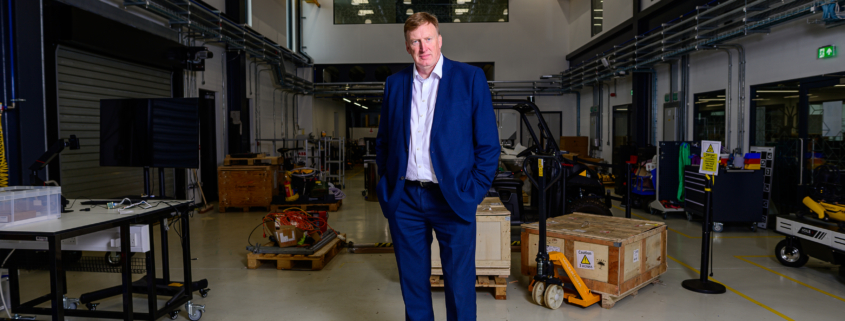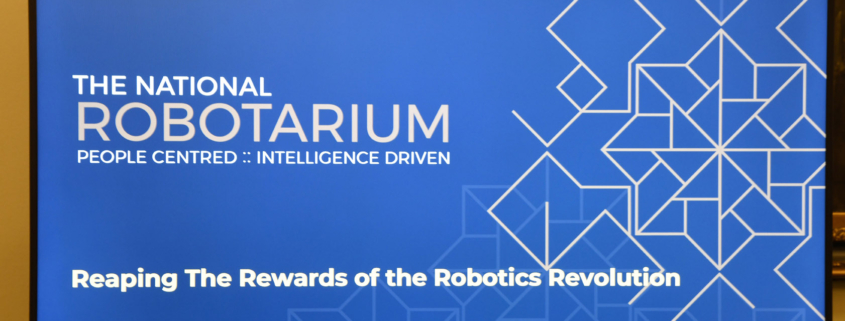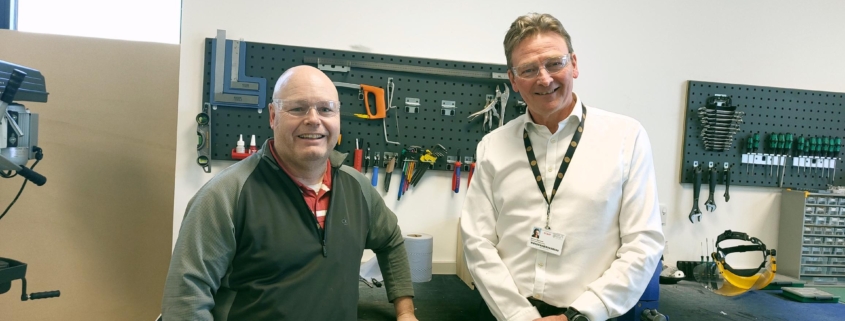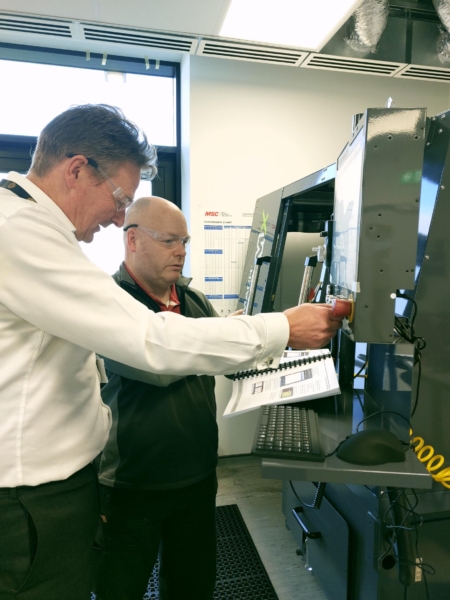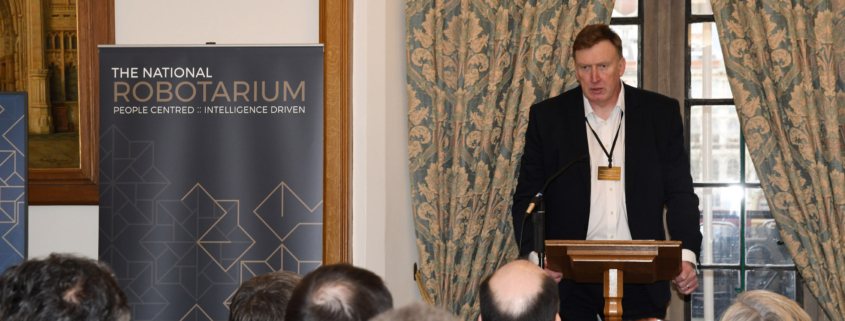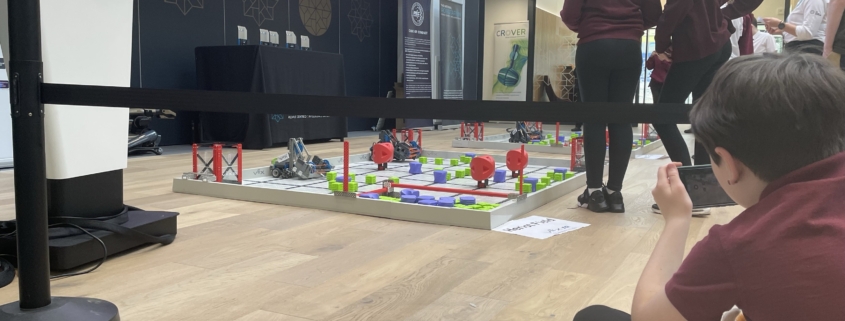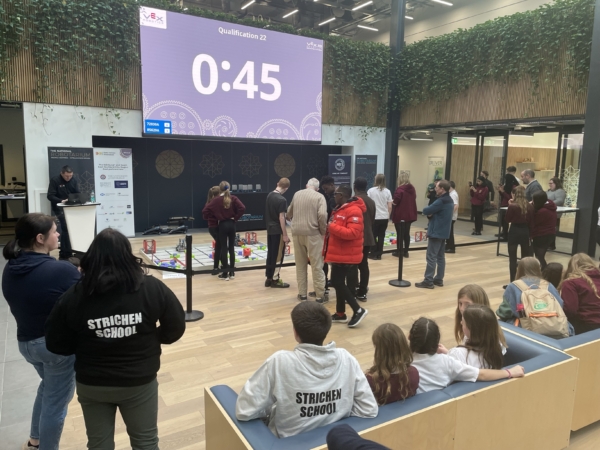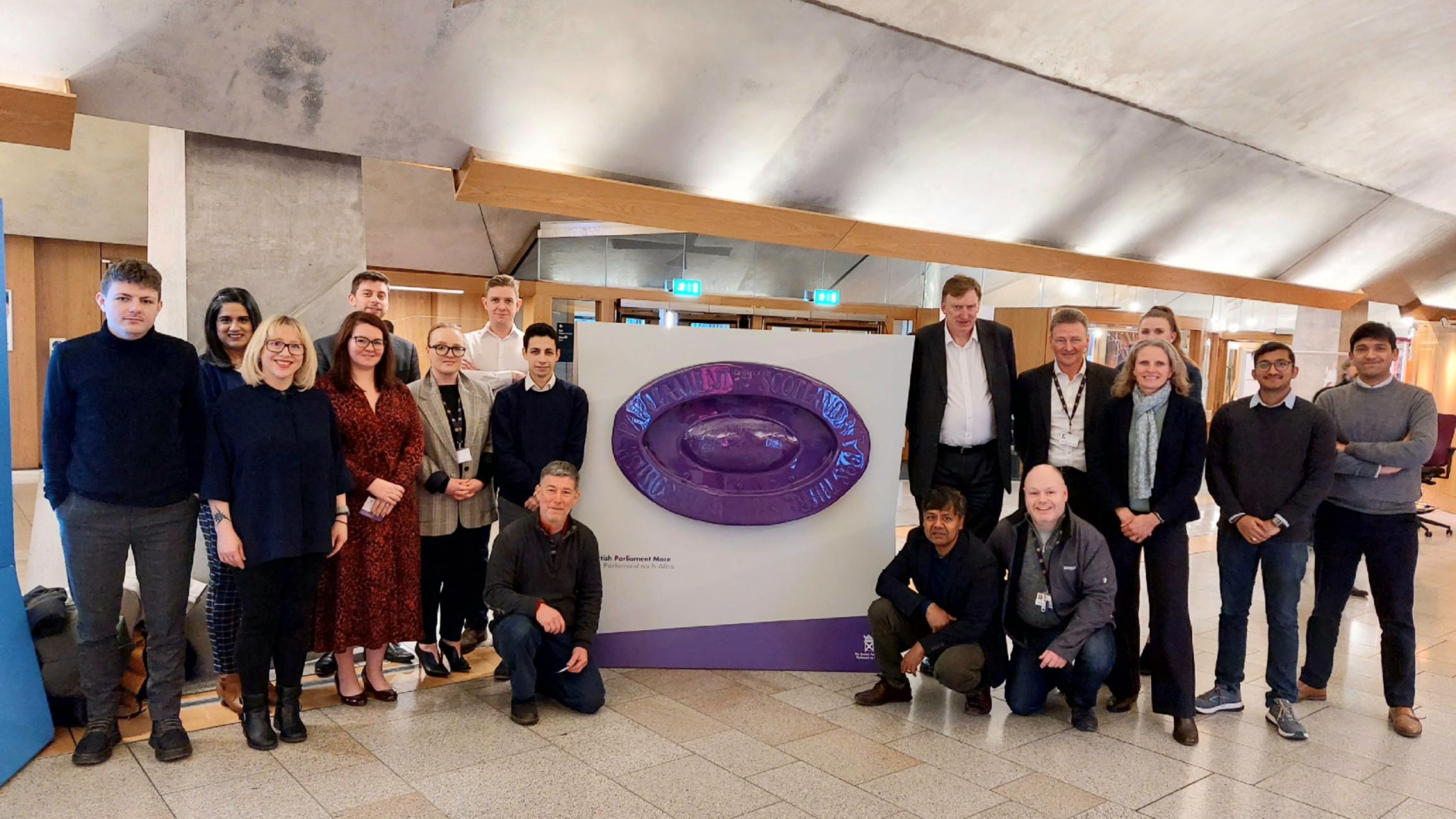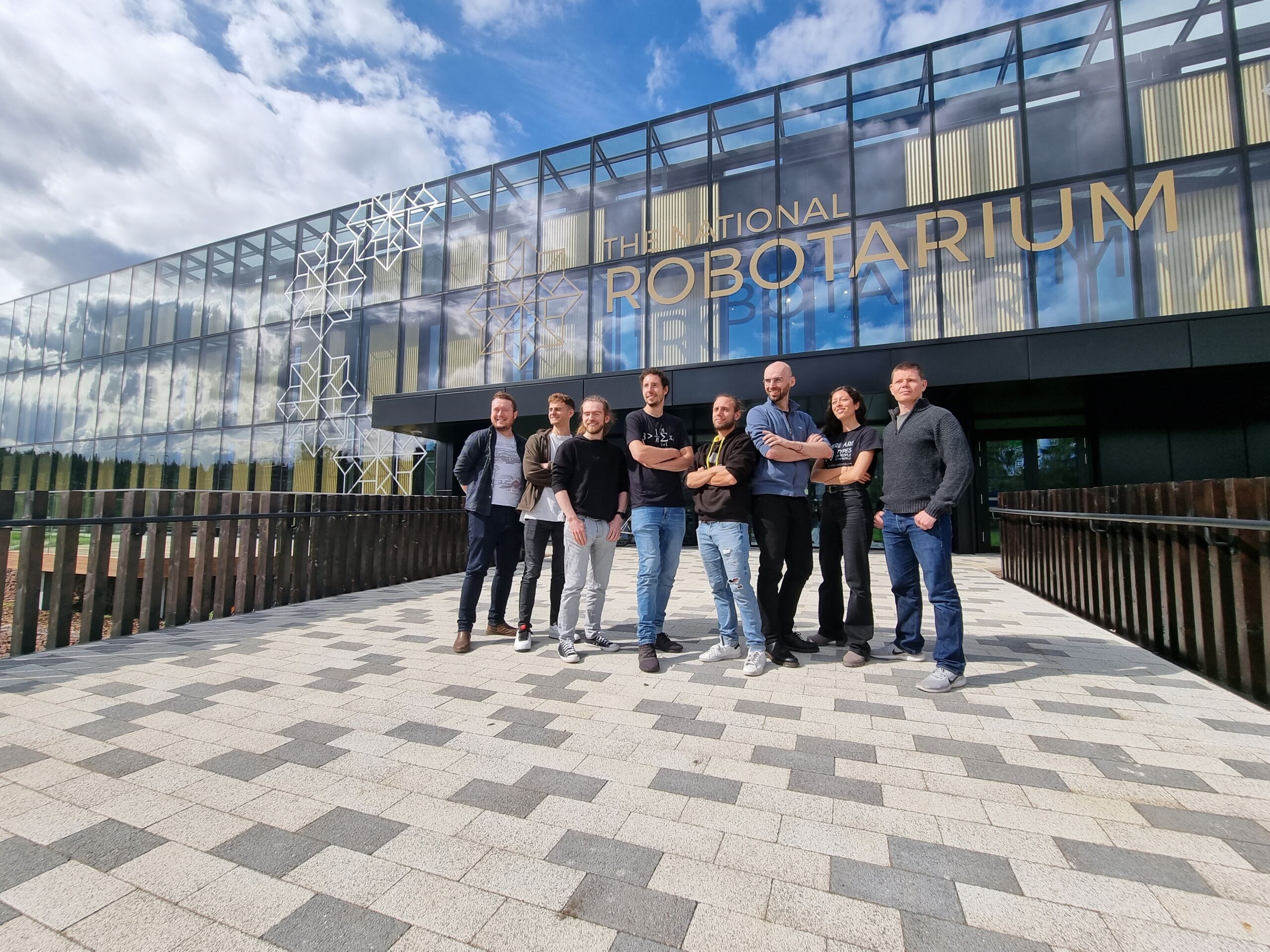Robotics: Scotland’s manufacturing opportunity
By Stewart Miller, CEO of the National Robotarium
In a forward-looking vision for Scotland’s future, the recent Programme for Government highlighted the critical role of advanced technologies in driving our economic growth and enhancing our public services. At the heart of this vision, the National Robotarium was specifically acknowledged as a driver of innovation – signalling the government’s recognition of the role that robotics will play in Scotland’s technological and economic future.
This acknowledgment comes at a pivotal time for Scotland. As we strive to boost our GDP and increase productivity, the role of cutting-edge technologies like robotics becomes increasingly important. The government’s commitment to investing in innovation and advanced manufacturing capabilities demonstrates a readiness to back transformative initiatives that can shape our economic landscape.
The global robotics market is poised for explosive growth; expected to surge from $72 billion in 2022 to an estimated $283 billion by 2032. This represents an unprecedented opportunity for economic growth and job creation. Scotland, with its strong tradition of entrepreneurship coupled with its engineering excellence, is well-positioned to seize this opportunity.
However, to fully capitalise on this robotics revolution, Scotland must evolve from being merely an innovator to becoming a manufacturer. This shift is essential if we are to reverse the current trend where the UK lags behind in robotics adoption, with only a 3% growth compared to global leaders like China, which saw a 5% increase of nearly 300,000 robot installations in 2022 alone.
The path forward is clear: we need to establish comprehensive robotics clusters in Scotland – not just centres for research and development, but complete ecosystems that serve all supply chain needs for making robots. These clusters would bring together academia, industry, and government to foster collaboration, drive commercialisation, and create high-skilled jobs.
The Scottish Government has already taken steps in this direction. The recent announcement of a £35 million Manufacturing Property Challenge Programme by Scottish Enterprise is a prime example. This initiative aims to create 1,000,000 sq ft of new industrial space, equivalent to 14 football pitches, to increase innovation and Scotland’s attractiveness to inward investors.
This investment is crucial, as Scotland’s manufacturing sector currently employs around 170,000 people and is responsible for more than half of the country’s international exports. By creating new, high-quality manufacturing spaces, we can attract more high-value manufacturing to Scotland, driving economic growth and increasing productivity.
The benefits of investing in robotics clusters are already evident. As the National Robotarium marks its second anniversary, it has become a hub of fresh ideas, hosting hundreds of professionals and students, incubating exciting start-ups, and driving forward industry-funded projects. Imagine the impact if we could scale this model across Scotland, and indeed the UK, adding robust manufacturing capabilities.
The potential applications of robotics are vast and varied. In healthcare, for instance, researchers at NHS Lanarkshire’s Blantyre LIFE care facility are testing a ‘social robot’ named ARI, designed to aid patients recovering from critical injuries. This project aims to support the self-management of rehabilitation by patients, showcasing how robotics can complement and enhance human expertise in healthcare settings. The collaboration between roboticists and healthcare professionals at Blantyre LIFE demonstrates the potential for robotics to address real-world challenges in our healthcare system.
In the energy sector, our partnership with Fugro on the UNITE project aims to revolutionise the maintenance of offshore wind turbines, improving worker safety and operational efficiency. This directly supports our renewable energy ambitions while creating new, high-skilled jobs.
The success of the National Robotarium in Edinburgh provides a blueprint for what could be achieved not just in Scotland but across the whole of the UK. Our vision extends beyond Scotland’s borders, proposing a network of ten ‘Robotarium’ facilities throughout the UK, each specialising in different sectors and capabilities. This UK-wide network would create a powerful ecosystem of robotics innovation and manufacturing, positioning Britain as a global leader in the field.
To fully realise these opportunities, we need a two-pronged approach: first, building on the Scottish Government’s initiatives here in Scotland, and second, advocating for a coordinated strategy across the entire UK.
In Scotland, our immediate focus should be on investing in advanced manufacturing facilities specifically geared towards robotics production, developing targeted training programmes to build the necessary workforce skills, and creating incentives for businesses to locate their robotics manufacturing operations here. The triple helix of academia, industry, and government in Scotland is crucial to driving innovation and commercialisation, as is supporting Scottish robotics companies in accessing global markets.
Simultaneously, we must work with partners across the UK to replicate and adapt these successful Scottish initiatives, creating a cohesive national strategy that leverages the strengths of each region.
By taking these steps, we can become not just a consumer of robotics technology, but a producer and exporter.
The Scottish Government has shown foresight in recognising the importance of “deep tech” and advanced manufacturing capabilities. Now, we need to build on this vision with concrete action – creating an environment where robotics innovation can thrive and where that innovation can be turned into tangible products manufactured right here in Scotland.
As other nations race ahead in robotics adoption and manufacturing, time is of the essence. Scotland has the talent, the research capabilities, and the innovative spirit. What we need now is the manufacturing infrastructure and supportive policy environment to match.
By embracing this opportunity, we can ensure that Scotland is not just a bystander in the robotics revolution, but a participant and leader. As the UK government refines its industrial strategy, it must recognise what the Scottish Government already has: robotics is not just the future, it’s the present, and it’s an opportunity we cannot afford to miss. The robots are coming – it’s time for Scotland to build them.
This article originally featured in The Herald HQ Business Supplement on 3 October 2024.

